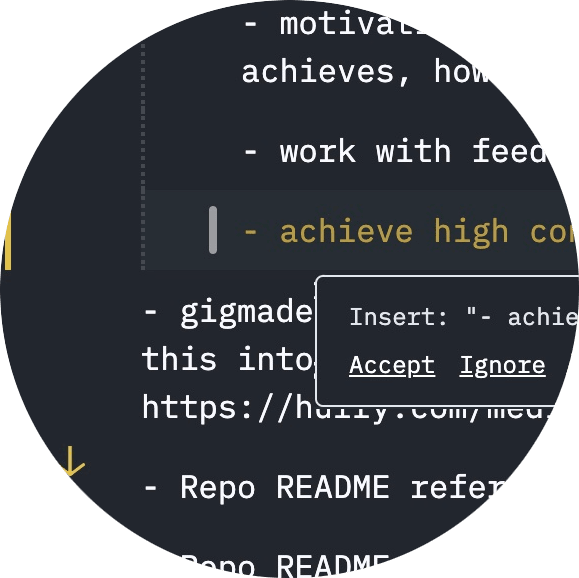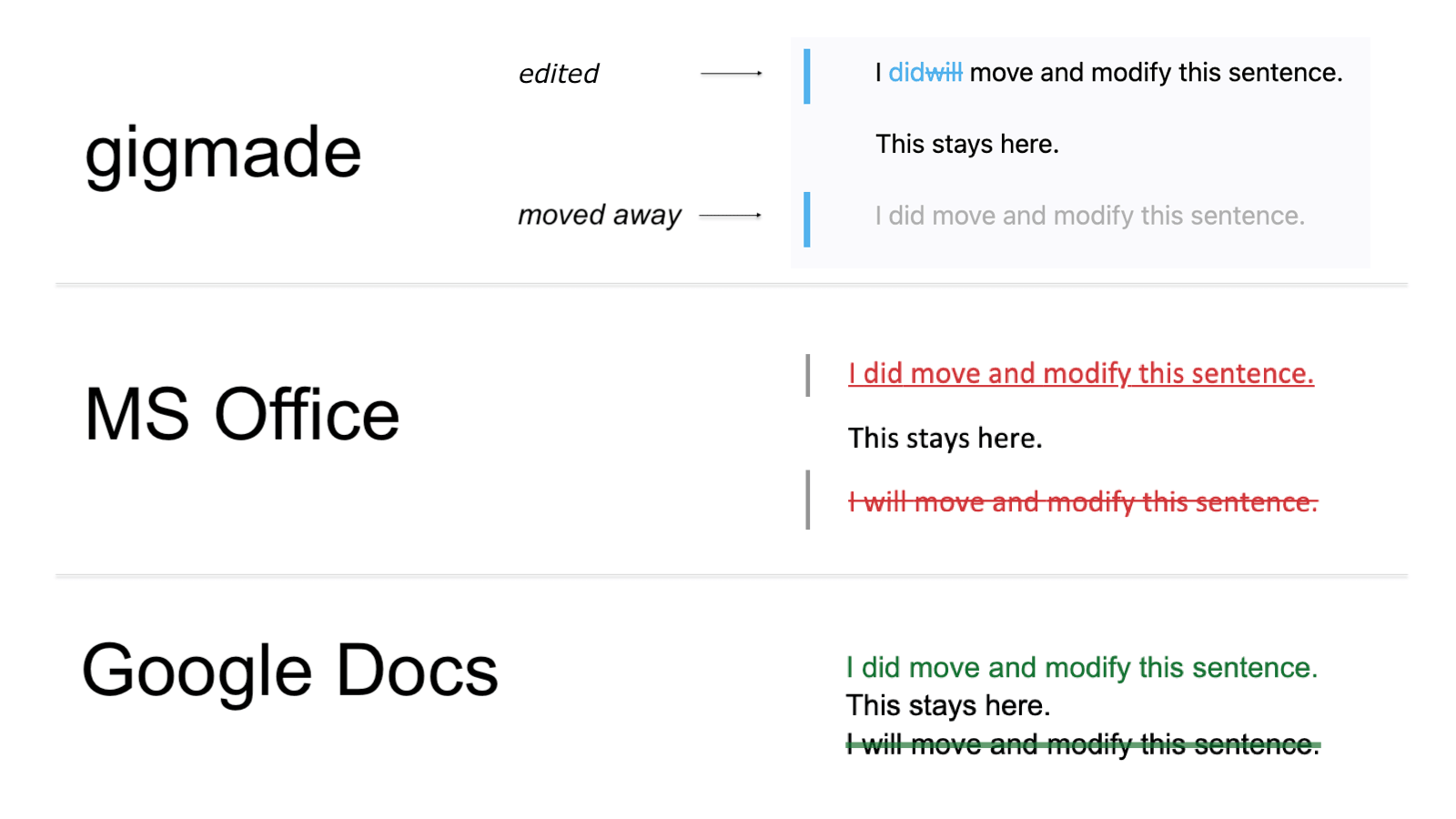Bessere Zusammenarbeit an Dokumenten

Need
Matt Levine from Bloomberg has the story Brightline redline about how Investment Bank Morgan Stanley forgot to turn on Track Changes in MS Word during contract negotiation, resulting in a lawsuit over 750 million US dollars:
Yet when Morgan Stanley's outside counsel returned a purportedly “fully executed” version of the amendment [...], the supposedly fully executed version included important language in the new section 2.11(h) that Knighthead and Certares had not before seen and had not agreed to.
The alternative, he suggests, could be reading the whole contract aloud to everyone before signing it.
However, that doesn't touch on the underlying problem: Tools like Track Changes or Google's Suggest Mode are not designed for actual negotiation:
- It's impractical to use Track Changes to negotiate between two alternative sentences, with each party successively refining theirs until a shared agreement is reached.
- If a section is both moved and edited, Track Changes will hide any edits made within that section. (Pro-tip for Morgan Stanleys outside counsel: Leaving Track Changes on but moving the entire bullet point down by one will also conceal your changes.)
- There is no way to solicit tentative or private feedback: every change is visible to all.
As a result, Track Changes is unreliable for negotiating contracts.
Collaboration is the ability to negotiate
Approach
To effectively enable negotiation within a shared document, contributors need the freedom to write without concern for existing tracked changes. The step to identify differences and reach agreement should be separate and effortless.
We have developed a web application to improve collaboration through two key design changes. For the tech-savvy, it resembles how git works:
- Every contributor makes edits without having to see Track Changes, thanks to being assigned their own document copy under the hood.
- We then make edits comprehensible to others by calculating actual changes, instead of tracking edit history as "Track Changes" does.
TrackUnderstand changes
Our custom algorithm enhances the comprehension of differences between contributors by presenting all modifications, even major ones, as intuitive, atomic suggestions. These can be individually accepted, rejected, or modified, facilitating negotiation and reaching agreement.
The algorithm is described on our Tree diff page.
The resulting "understandable changes" look very similar to "Track Changes", but we learn a new hint which "Track Changes" cannot produce: greyed-out sections indicate moved-away sections.
Lets look at an example:

Our application captures both sentence movement and word replacement, which both "Track Changes" and "Suggest" fail to recognize.
The algorithm detects two changes: A sentence move, and a word replacement. Both can be separately accepted or rejected.
In comparison, "Track Changes" or "Suggest" offer only editing history: A sentence removed, a sentence added, but no indication that it is the same. Discovering this manually becomes exceedingly difficult on meaningful changes.
Benefits
There are important benefits to this collaboration approach:
- Understand changes of any complexity and by multiple contributors
- Freely and concurrently edit the document, without having to navigate around other contributors' redactions
- Negotiating change and finding compromise become a seamless part of the editing experience
- Increase the number of contributors without losing any clarity on competing changes
- Simplify document permissions management
- Automatic versioning and audit trail
- Novel workflows such as requesting private edits
It might have saved Morgan Stanley millions of dollars, along with a few hours of reading contracts aloud to everyone.
Current state
Early versions of the web application and the algorithm are currently being evaluated by a small number of businesses.